A Conflict Is Emerging in EU around Juncker's Plan
Adelina Marini, April 22, 2015
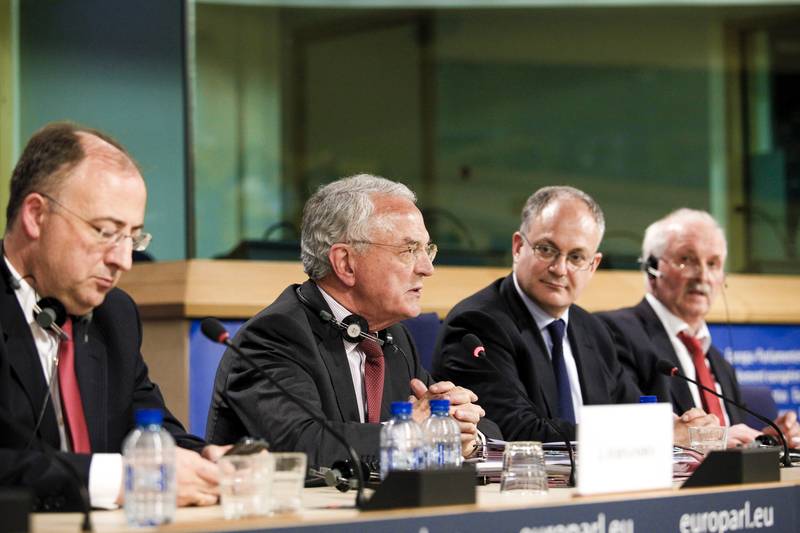 This week (23 April) will begin the negotiations between the Council and the European Parliament on the European Commission investment plan. As it usually happens with the most important European topics, however, for this plan as well a strong clash is emerging between the two institutions. This becomes clear from the differences in the negotiating stances of the two parties. The economic and financial affairs council (ECOFIN) has approved its position in the beginning of March and the economic and budget committees of the European Parliament have voted a joint one on 20 April. Although their positions are quite close in many aspects, the conflict between them affects one of the fundamentals of the investment plan - its source of capital. In its position of 10 March, the Council of Ministers adopted the proposal of the European Commission the future investment fund, which will provide guarantees for high-risk projects, to be financed by 8 billion euros from the EU multiannual budget. More specifically, money will be taken from the programme that funds research and development - Horizon 2020 - the Connecting Europe Facility, which funds infrastructure projects, and unused margins in the budget.
This week (23 April) will begin the negotiations between the Council and the European Parliament on the European Commission investment plan. As it usually happens with the most important European topics, however, for this plan as well a strong clash is emerging between the two institutions. This becomes clear from the differences in the negotiating stances of the two parties. The economic and financial affairs council (ECOFIN) has approved its position in the beginning of March and the economic and budget committees of the European Parliament have voted a joint one on 20 April. Although their positions are quite close in many aspects, the conflict between them affects one of the fundamentals of the investment plan - its source of capital. In its position of 10 March, the Council of Ministers adopted the proposal of the European Commission the future investment fund, which will provide guarantees for high-risk projects, to be financed by 8 billion euros from the EU multiannual budget. More specifically, money will be taken from the programme that funds research and development - Horizon 2020 - the Connecting Europe Facility, which funds infrastructure projects, and unused margins in the budget.
The European Commission idea is these 8 billion euros not to be withdrawn at once from the 7-year budget of the EU (2014-2020) but to be collected gradually. According to Parliament, this should happen with the approval of the EU annual budget which the Commission is against. During the debate on the plan in the economic and budget committees of the European Parliament, a representative of the European Commission criticised this idea because in the past years it is very hard to find a surplus in the budget. If the money for the investment fund are to be approved each year this will create a huge risk, especially for the EU credit rating which is providing guarantees without any clarity whether these guarantees will be funded.
The Council wants a change of name
Excluding the main issue about the financing of the fund, there are no big differences in the positions of the Council and the European Parliament. The main problems for the Council, which emerged during the public debate on the plan in the beginning of March, are two. The first is how to name the investment committee. In the initial proposal of the Commission it is envisaged to establish an investment committee the role of which will be to pinpoint specific projects and to decide which of them should get support from the investment fund without any geographical and sectoral quotes. The committee to consist of six independent market experts and a managing director to take care of the daily management of the fund, the Commission wants. The chief of the European Investment Bank (EIB), which is a co-founder of the investment fund, proposed the name of the committee to be changed from an investment committee to a guarantee one. According to Werner Hoyer, this is necessary because the investors do not quite understand what exactly does an investment committee do.
Some member states agreed that the name of the committee is indeed misleading. Those were Luxembourg, Portugal and Malta. This caught Commission Vice President Jyrki Katainen (EPP, Finland), who is responsible for investments, by surprise. He said that he heard the need of a change of name for the first time. Mateusz Szczurek, the finance minister of Poland, was against such a change. "I do have a problem with a step in which an investment/guarantee committee gets killed for principled grounds. Not for economic reasons but because of outstanding rules within the EIB", the minister said. Although he accepted the proposal, the finance minister of Luxembourg, Pierre Gramegna, asked for more clarity what consequences would such a name change have. But he found it a good idea to call the committee a guarantee one because it speaks about who bears the responsibility for what.
The second issue which the ministers focused a lot of their time on during the public debate was the risk of politicisation of the selection of projects. This risk is very real judging by the way this plan is perceived in the member states - as an additional wing of the multiannual budget whose function is to invest in projects that remained outside the scope of the EU budget. Mr Katainen's tour across Europe is focusing precisely on this - to explain that the two things are deeply different. German Finance Minister Wolfgang Schaeuble underscored that it is very important the issue not to be politicised. The selection of  projects should remain a matter of capital. His British counterpart George Osborne also warned that the projects have to be selected in a very specific and non-political way.
projects should remain a matter of capital. His British counterpart George Osborne also warned that the projects have to be selected in a very specific and non-political way.
The European Parliament does not want to give the EU budget away
Many of the MEPs who participated in the debates on the plan also agreed that the selection of projects should not be politicised. "There should be no selection of projects based on political colour and the political guidelines should be clear and respected", said the co-rapporteur of the European Parliament on the investment plan Jose Manuel Fernandes (EPP, Portugal). According to another MEP, the danger of an increased political interference in the projects is very big. This issue, however, was not a major one for the parliamentary debate. A much more significant question was the risk the MEPs saw for the multiannual financial framework, which is the official name of the EU budget. First spoke about this the second co-rapporteur on this dossier, the socialist Udo Bellmann (Germany). The former EU commissioner for the budget in two consecutive terms, Janusz Lewandowski (EPP, Poland), said that when the Commission first presented the proposal it seemed the link with the EU budget was not essential.
However, this issue proved central for the European Parliament and is the basis of its negotiating stance approved on Monday evening by the two committees by 69 votes "for", 13 "against" and 6 abstentions. The position says that the Commission has to find alternative sources of financing of the guarantee fund. "It is deeply regrettable that the Commission and the national governments, obsessed as they are by the narrow 'juste retour' logic, propose to finance the Juncker plan at the expense of parts of the EU budget that are genuinely European and transnational. At a time when all Member States recognise the need to relaunch investment in Europe, I invite them to directly provision the guarantee, as a token of trust and confidence", said the chairman of the budget committee Jean Arthuis (ALDE, France). He proposed the member states to use the budget surpluses for the purpose. So far, 6 member states have proposed to participate with their own money in the fund - Germany, France, Spain, Italy, Luxembourg and Poland. Germany, France, Italy and Poland will participate with 8 billion euros each, as Poland announced its participation on Tuesday. Spain will contribute 1.5 billion euros and Luxembourg 80 million.
"Our objective is to preserve as much as possible Horizon 2020 and Connecting Europe Facility", added the co-rapporteur Fernandes, adding that during the mid-term review of the multiannual financial framework, planned for 2016, it has to be discussed these programmes to be refunded.
The positions of the Parliament overlap with the Council in terms of the number of members in the investment committee (or a guarantee committee) - eight. The initial proposal of the Commission envisaged their number to be six. IN addition, the parliament wants third countries not to be allowed to have a guaranteed membership in the steering committee of the investment fund. This option was left open by the Commission, as Jyrki Katainen mentioned that it could be considered, depending on their participation, third countries, for instance investment funds outside EU, to receive voting rights. The parliament, however, is firmly against this. The Council has not articulated a concrete opinion on this issue, apart from allowing third countries to be able to co-finance projects either through the fund or through investment platforms.
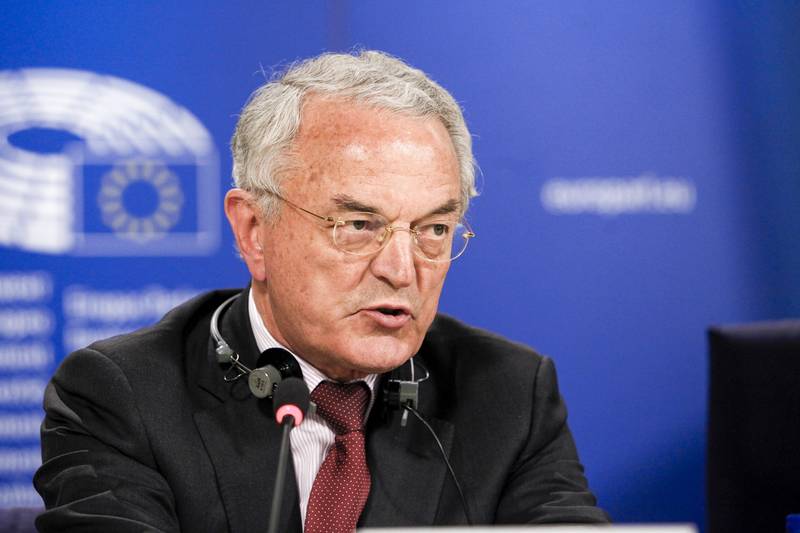 The Commission's ambition is the investment plan to be approved by June to be able to start functioning immediately after that. However, Bernd Lucke (ECR, Germany) spoke against this because, he said, rushing is never a good idea when it comes to such a large source of funding - 315 billion euros - which will be used in a different than the usual way. Will this deadline be respected, however, will depend on whether the parties are ready to compromise, taking into account that the dispute affects one of the fundamentals of Juncker's proposal
The Commission's ambition is the investment plan to be approved by June to be able to start functioning immediately after that. However, Bernd Lucke (ECR, Germany) spoke against this because, he said, rushing is never a good idea when it comes to such a large source of funding - 315 billion euros - which will be used in a different than the usual way. Will this deadline be respected, however, will depend on whether the parties are ready to compromise, taking into account that the dispute affects one of the fundamentals of Juncker's proposal
It is highly likely a compromise to be found in the mid-term review of the implementation of the multiannual framework of the EU. Such a review has been introduced for the first time when the current framework was negotiated upon European Parliament's insistence. The main argument was that 7 years is too long a period to leave a framework untouched without taking into account the global developments. The parliament pointed at the euro area crisis as an example when the use of money from the common EU budget was very necessary at some point but impossible. The review will be done by Vice President Kristalina Georgieva (EPP, Bulgaria), who is responsible for the budget.
Bulgaria insists in the geographic principle
Deputy Prime Minister Meglena Kuneva, who was Bulgaria's first EU Commissioner, is a minority in the Council being against the Commission's concept the projects not to be selected on a geographical principle. In March, she said that there should be no projects that are concentrated only in one geographical region and there is such a risk. It stems from the fact that the more experienced countries prepare projects with higher added value because they know how to write such projects. That is why, political efforts need to focus on keeping the balance. During the debate in ECOFIN Bulgaria, Hungary, Croatia and the Czech Republic filed a special declaration demanding technical assistance for the preparation of projects. Ms Kuneva believes that there are strong arguments in defence of the geographical scope.
 First and foremost, part of the money for the investment fund is coming from the common budget. "This means that something that is generally distributed following the principle of cohesion and solidarity is being changed, is that right? Now the rules are being changed on the go. So, if we want to continue to believe that the rules in the EU are forever and for everyone we need to keep this principle", she said. The deputy prime minister had another concern too, related to the Juncker plan. It is about the capital markets which are not as well developed in Bulgaria as in Germany, for example. That is why, she said that literally "enlightening efforts" are needed with the business. There should be projects that are aimed entirely for the Bulgarian territory. "Otherwise, it comes out that something the countries with bigger contributions have already given to the EU is being redistributed. Not to mention that even without that Bulgaria is suffering from being outside the euro area. This changes things a lot because the real help euro area countries receive is through the so called quantitative easing", Meglena Kuneva concluded.
First and foremost, part of the money for the investment fund is coming from the common budget. "This means that something that is generally distributed following the principle of cohesion and solidarity is being changed, is that right? Now the rules are being changed on the go. So, if we want to continue to believe that the rules in the EU are forever and for everyone we need to keep this principle", she said. The deputy prime minister had another concern too, related to the Juncker plan. It is about the capital markets which are not as well developed in Bulgaria as in Germany, for example. That is why, she said that literally "enlightening efforts" are needed with the business. There should be projects that are aimed entirely for the Bulgarian territory. "Otherwise, it comes out that something the countries with bigger contributions have already given to the EU is being redistributed. Not to mention that even without that Bulgaria is suffering from being outside the euro area. This changes things a lot because the real help euro area countries receive is through the so called quantitative easing", Meglena Kuneva concluded.
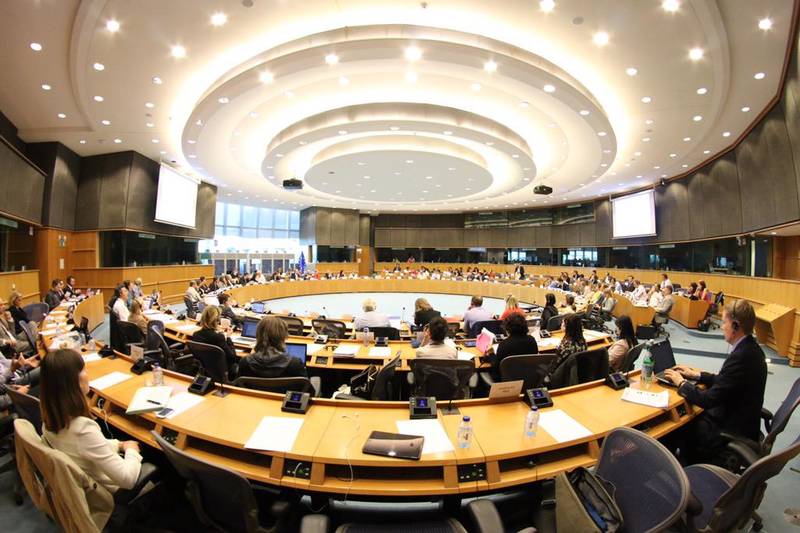 | © European Commission
| © European Commission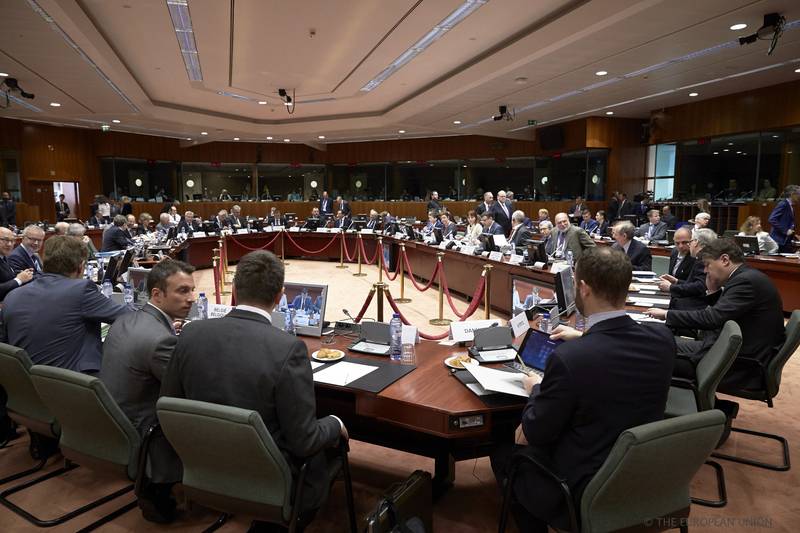 | © Council of the EU
| © Council of the EU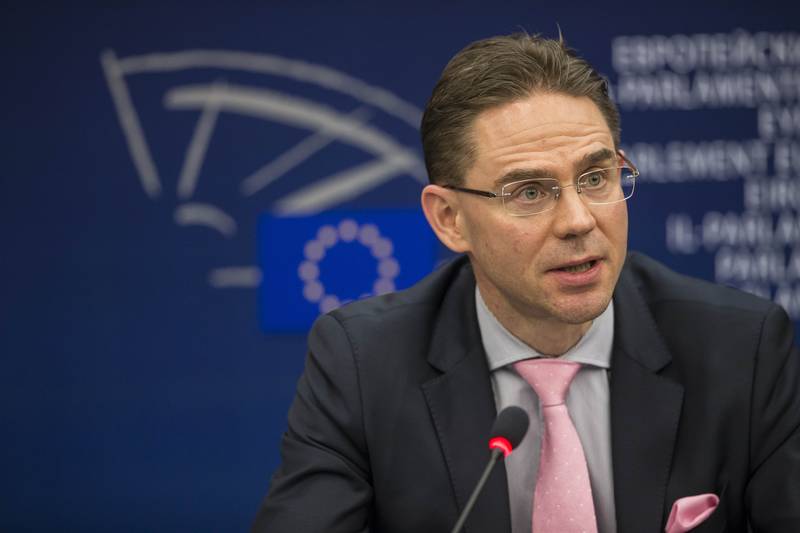 Jyrki Katainen | © European Commission
Jyrki Katainen | © European Commission